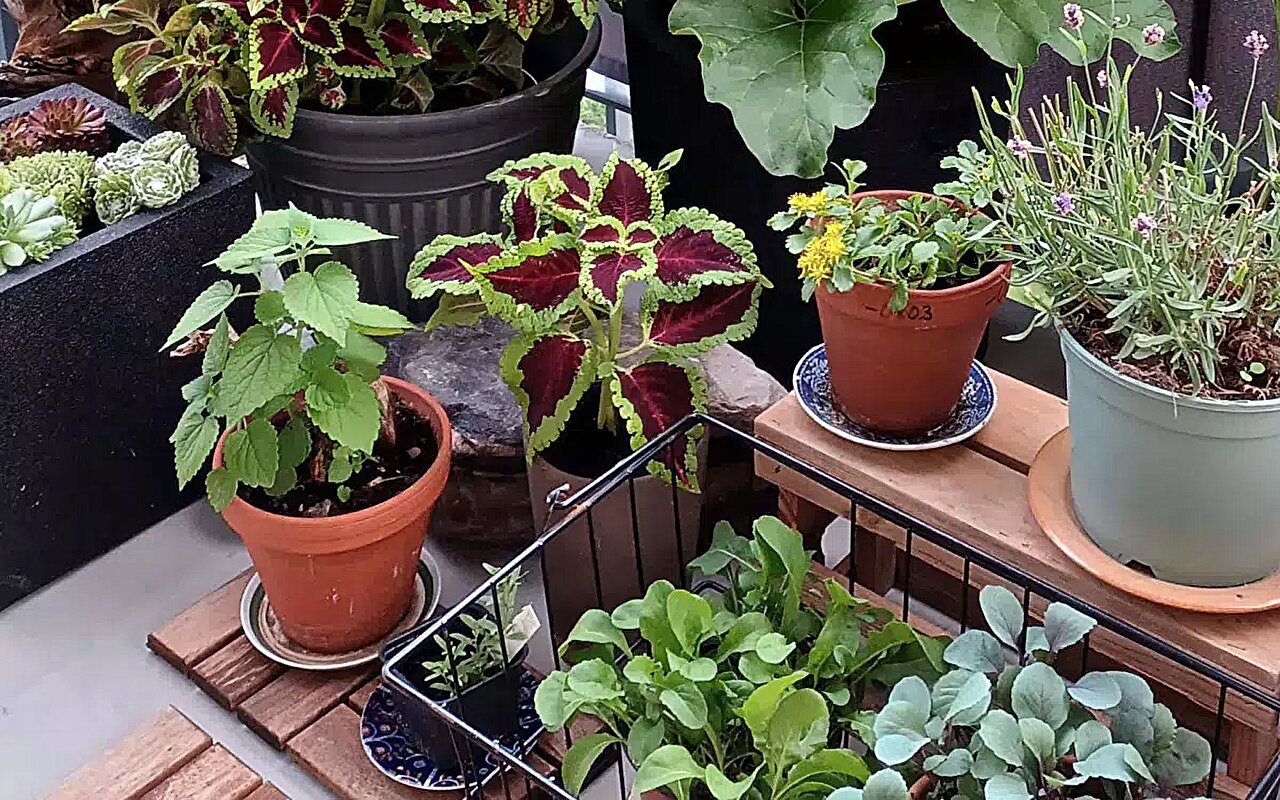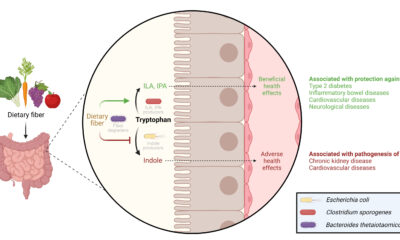Health
Urban gardening can improve human health; subjects benefit from microbial exposure

It is easy to start growing indoors in pots in the spring when the weather is still cool, and then move to the balcony when the weather warms up, for example. Either way, you don’t need much space. Credit: Mika Saarenpää
A joint study between the University of Helsinki, the Natural Resources Institute Finland and the University of Tampere has shown that a month of indoor gardening increases the bacterial diversity of the skin and is associated with higher levels of anti-inflammatory molecules in the blood.
In his dissertation, Mika Saarenpää investigated, among other things, how microbial exposure that promotes the health of urban residents, and in particular improves their immune regulation, can easily be increased through meaningful activities integrated into daily life. The study has been since then published in the news Environment International.
Contact with naturally derived, microbially rich materials has previously been shown to alter human microbiota. In Saarenpää’s study, test subjects engage in urban gardening, an activity that is natural to them and can lead to long-term changes in the functioning of the immune system.
“A month of indoor gardening in the city increased the diversity of bacteria on the skin of the subjects and was associated with higher levels of anti-inflammatory cytokines in the blood. The group studied used a growth medium with a high microbial diversity that mimicked the forest floor,” says PhD student Saarenpää from the Faculty of Biological and Environmental Sciences of the University of Helsinki.
The control group, on the other hand, used a low-microbial, peat-based medium. According to Saarenpää, no changes in the blood or skin microbiota were observed. Peat is the most widely used growing medium in the world and the environmental impact of its production is strongly negative. Furthermore, Saarenpää’s research indicates that it does not provide health benefits comparable to those of a medium that mimics diverse forest soils.
“The findings are significant, as urbanization has led to a significant increase in immune-mediated diseases, such as allergies, asthma and autoimmune diseases, causing high healthcare costs. We live too ‘clean’ in cities,” says Saarenpää.
“We know that urbanization leads to a reduction in microbial exposure, changes in the human microbiota and an increase in the risk of immune-mediated diseases. This is the first time we can demonstrate that meaningful and natural human activity can increase microbiota diversity. of healthy adults and at the same time contribute to the regulation of the immune system.”
Urban gardening is an effortless way to improve health
Microbial exposure can be easily and safely increased at home all year round. The space required and financial investment are small: in the study, gardening took place in regular flower boxes, while the plants grown, such as peas, beans, mustard and salads, came from the store shelf.
Within a month, changes were already observed, but because the subjects enjoyed gardening, many of them announced that they would continue the activity and switch to outdoor gardening in the summer.
According to Saarenpää, microbe-mediated immune regulation can at best reduce the risk of immune-mediated diseases or even their symptoms. If health-promoting exposure to microbial agents could be increased at the population level, health care costs associated with these diseases could be reduced and people’s quality of life improved.
“We do not yet know how long the observed changes in skin microbiota and anti-inflammatory cytokines last, but if gardening becomes a hobby, it can be assumed that the regulation of the immune system becomes increasingly continuous,” notes Saarenpää.
Saarenpää believes it is important to invest in children’s exposure to nature and microbes, as the development of the immune system is most active in childhood. Planters filled with microbially rich soil could be introduced in kindergartens, schools and, for example, hospitals, especially in dense urban areas.
For urban gardening to provide health benefits rather than risks, the skin on the hands in particular must be intact and inhalation of dusty growing media must be avoided.
“My research emphasizes the dependence of our health on the diversity of nature and that of the soil in particular. We are one species among others, and our health depends on the range of other species. Ideally, urban areas would also have such a diverse natural character. environment that microbial exposure that is beneficial to health does not have to be sought in specifically designed products,” says Saarenpää.
More information:
Mika Saarenpää et al., Indoor urban gardening improves immune regulation and diversifies skin microbiota – A placebo-controlled, double-blind intervention study, Environment International (2024). DOI: 10.1016/j.envint.2024.108705
Quote: Urban gardening can improve human health – subjects benefit from microbial exposure (2024, May 22) retrieved May 25, 2024 from https://medicalxpress.com/news/2024-05-urban-gardening-human-health-subjects. html
This document is copyrighted. Except for fair dealing purposes for the purpose of private study or research, no part may be reproduced without written permission. The content is provided for informational purposes only.













